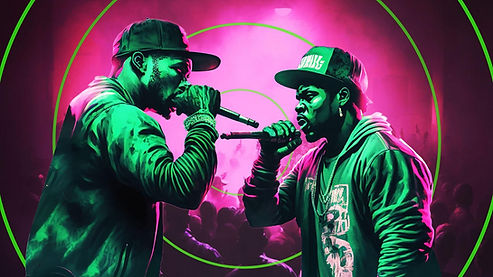By: Connie Cao
Bedford-Stuyvesant has a wellness center between a Pentecostal church and an estate center. Inside this center is where an excellent piece of art takes place – a rap battle.
One of many rap battles takes place in New York City. This center was founded by Tyrell Reid, also known as No Mercy. It is named Trap NY. It’s a very well-known institution where future rap stars flourish.
Battle Rap is a sport and work of art. The industry has been improving staggeringly over the past few decades. It is devoted to famous leagues such as Ultimate Rap League (URL), King of the Dot, and Rare Breed entertainment. These leagues have gathered large, devoted battlers from around the world.
The rap battles often follow a specific structure that includes three rounds. In these rounds, two M.C.s try to rap with each other using verses explicitly made for the opponent. Ultimately, there’s no guaranteed win as half of the votes for viewers online and in person.
With the intense battles, the money prize has also risen. Today, hundreds of devoted rappers are after the money. Most of the rappers who join these competitions don’t get paid much. They come to Trap NY to prove themselves to the next generation of elite rappers.
However, these rap battlegrounds also face obstacles. Lexx Luthor, a Staten Island-based battle rapper and owner of iBattle, argues that it’s hard to maintain a sense of community with these rap battles. Rap Battles often don’t have much cultural diversity and are often stereotypical. iBattle tries to include as much diverse opponents as possible. One recent battle was with a white Christian rapper facing a bisexual Jew.
“It just felt like the longer I stayed a battle rapper, the less and less there was of a community,” Lexx said. “So when iBattle went defunct, and the original league owner couldn’t run it anymore because of health issues, I knew I couldn’t let it die.”
Battle rap is not only a work of art in its definition; it is a work of art in its diversity. Every rapper has a different way of coming up with verses, and everyone comes from different backgrounds. Today, hundreds of elite rappers are still rapping out their unique songs.











